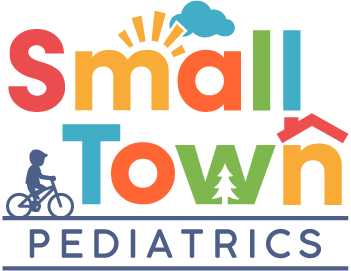Keeping Your Child Healthy
Preventive care:
- is the foundation of pediatric care
- helps your kids grow well, avoid health pitfalls, and develop healthy habits.
- includes “well baby” visits in the first 2 years and annual “well child” check-ups.
- focuses on growth/development, behavior/mood, screening for common health concerns.
- Includes routine childhood immunizations against preventable illnesses.
- Is usually covered by insurance premiums with no “out of pocket” costs for insured families.
- is a time for you and your kids to ask questions about their health and development – Such as “Is this normal?”
Small Town Pediatrics is there for you with the combined experience of helping thousands of families with questions about their kids as they have grown.







